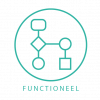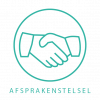MedMij FHIR Implementation Guide: BgZ 3.1.24


Inhoud
1 Introduction
The program ‘Registratie aan de bron’ (Clinical documentation at the point of care) has defined Health and Care Information models (HCIMs (English) or zibs (Dutch)) for The Netherlands. Next to these HCIMs, the program ‘Registratie aan de bron’ also made a selection of these HCIMs into the so-called ‘Basisgegevensset Zorg’ (Common Clinical Dataset, a Dutch version of a ‘patient summary’, further referred to as ‘BgZ’). The BgZ serves as a minimal healthcare dataset that is always appropriate for caregivers in order to provide continuity of care for a patient and can be seen as a representation of a patient summary.
A subselection of the published HCIMs release 2017 constitute the BgZ 2017. The BgZ makes a subselection of the information concepts within the HCIMs or restricts the HCIMs to a certain category. For example, only include the general practitioner of the patient or only the last known value of 'X'. MedMij created FHIR profiles that represent these HCIMs completely if no existing and usable profiles were available. The profiles represent their entire respective HCIM, to make them applicable in a broader context than a patient summary or even the MedMij context. An overview of the profiles can be found at the list of profiles.
The patient journey of Thomas van Beek, provides a patients context for exchanging a patient summary from a healthcare provider's system (XIS) to a personal health record (PHR). MedMij created a functional design of the BgZ use case. This use case consists of enabling a patient to view his own BgZ in a PHR. This page will elaborate further on the HL7 FHIR details needed to exchange the BgZ information using FHIR.
Note: This implementation guide builds on the general guidelines described in the use case overarching principles.
2 Actors involved
| Actors | Systems | FHIR Capability Statements | |||
|---|---|---|---|---|---|
| Name | Description | Name | Description | Name | Description |
| Patient | The user of a personal healthcare environment. | PHR | Personal health record | FHIR Client requirements | |
| Healthcare professional | The user of a XIS | XIS | Healthcare information system | FHIR Server requirements | |
3 Boundaries and Relationships
The BgZ 2017 v1.1 use case follows the BgZ v1.0 use case. The difference between the two is the underlying HCIMs, which have been upgraded from release 2015 to release 2017. The changes are documented in a release notes document.
The BgZ use case has similarities and differences with other use cases such as Medication Process, Vital Signs and Lab Results. These use cases use the same HCIM based FHIR profiles for exchanging information. The BgZ use case covers practically all profiles included in the other use cases. However, the BgZ differs in the scope of the actual health information content that should be exchanged. For example, the BgZ conveys only the last known lab result of each type while the Lab Results use case may cover all known information.
4 Use Case: Retrieve BGZ information
This FHIR implementation guide assumes that the PHR system is able to make a connection to the right XIS that contains the patient's information. It does not provide information on finding the right XIS nor does it provide information about security. Moreover, each transaction is performed in the context of a specific authenticated patient, for whose context (token) has been established using the authentication mechanisms described in the 'Afsprakenstelsel'. Each XIS Gateway is required to perform filtering based on the patient associated with the context for the request, so only the records associated with the authenticated patient are returned. For this reason, search parameters should not be included for patient identification.
4.1 PHR: request message
The PHR system requests the BgZ using individual search interactions. The BgZ consists of multiple FHIR resources with certain constraints. To obtain the patient's BgZ, the client can use multiple individual search operations based on specified search queries. The interactions are performed by an HTTP GET as shown:
GET [base]/[type]{?[parameters]}
The table below shows in the first four columns the BgZ sections, the HCIMs that constitute those sections and the specific content of the BgZ. The last column shows the FHIR search queries to obtain the BgZ information. These queries and expected responses are based on profiles listed in this section.
| # | BgZ Section | HCIM EN | Content | Search URL[1] | ||||||
|---|---|---|---|---|---|---|---|---|---|---|
| 1 | Patient information | Patient | Identification, birth date, gender, deceased indicator, contact details, last known marital status, and general practitioner (practitioner or organization) | GET [base]/Patient?_include=Patient:general-practitioner | ||||||
| 2 | Payment details | Payer | Insurance information | GET [base]/Coverage?_include=Coverage:payor:Patient&_include=Coverage:payor:Organization | ||||||
| 3 | Treatment directives | TreatmentDirective | Known treatment directives | GET [base]/Consent?category=http://snomed.info/sct|11291000146105 | ||||||
| AdvanceDirective | Known advance directives | GET [base]/Consent?category=http://snomed.info/sct|11341000146107 | ||||||||
| 4 | Contact persons | ContactPerson | First relation/contact | see Patient | ||||||
| 5 | Functional status | FunctionalOrMentalStatus | Last known functional / mental status | GET [base]/Observation/$lastn?category=http://snomed.info/sct|118228005,http://snomed.info/sct|384821006
| ||||||
| 6 | Problems | Concern | All known problems | GET [base]/Condition | ||||||
| 7 | Social history | LivingSituation | Current living situation | GET [base]/Observation/$lastn?code=http://snomed.info/sct|365508006 | ||||||
| DrugUse | All known drug use | GET [base]/Observation?code=http://snomed.info/sct|228366006 | ||||||||
| AlcoholUse | All known alcohol use | GET [base]/Observation?code=http://snomed.info/sct|228273003 | ||||||||
| TobaccoUse | All known tobacco use | GET [base]/Observation?code=http://snomed.info/sct|365980008 | ||||||||
| NutritionAdvice | All known dietary recommendations | GET [base]/NutritionOrder | ||||||||
| 8 | Alerts | Alert | All known alerts | GET [base]/Flag | ||||||
| 9 | Allergies | AllergyIntolerance | All known information regarding allergies | GET [base]/AllergyIntolerance | ||||||
| 10 | Medication | MedicationUse | Known medication use | GET [base]/MedicationStatement?category=urn:oid:2.16.840.1.113883.2.4.3.11.60.20.77.5.3|6&_include=MedicationStatement:medication | ||||||
| MedicationAgreement | Known medication agreements | GET [base]/MedicationRequest?category=http://snomed.info/sct|16076005&_include=MedicationRequest:medication | ||||||||
| AdministrationAgreement | Known administration agreements | GET [base]/MedicationDispense?category=http://snomed.info/sct|422037009&_include=MedicationDispense:medication
| ||||||||
| 11 | Medical aids | MedicalDevice | Known medical aids | GET [base]/DeviceUseStatement?_include=DeviceUseStatement:device | ||||||
| 12 | Vaccinations | Vaccination | Known vaccinations | GET [base]/Immunization?status=completed | ||||||
| 13 | Vital signs | BloodPressure | Last known blood pressure | GET [base]/Observation/$lastn?code=http://loinc.org|85354-9 | ||||||
| BodyWeight | Last known body weight | GET [base]/Observation/$lastn?code=http://loinc.org|29463-7 | ||||||||
| BodyHeight | Last known body height | GET [base]/Observation/$lastn?code=http://loinc.org|8302-2,http://loinc.org|8306-3,http://loinc.org|8308-9 | ||||||||
| 14 | Results | LaboratoryTestResult | Last known laboratory results per type | GET [base]/Observation/$lastn?category=http://snomed.info/sct|275711006&_include=Observation:related-target&_include=Observation:specimen | ||||||
| 15 | Procedures | Procedure | Known surgical procedures | GET [base]/Procedure?category=http://snomed.info/sct|387713003 | ||||||
| 16 | Encounters | Contact | Known hospital admissions (no outpatient contacts) | GET [base]/Encounter?class=http://hl7.org/fhir/v3/ActCode|IMP,http://hl7.org/fhir/v3/ActCode|ACUTE,http://hl7.org/fhir/v3/ActCode|NONAC | ||||||
| 17 | Planned care | PlannedCareActivityForTransfer | Known planned care activities |
GET [base]/ProcedureRequest?status=active GET [base]/ImmunizationRecommendation
GET [base]/MedicationDispense?category=http://snomed.info/sct|422037009&status=in-progress,preparation&_include=MedicationDispense:medication
GET [base]/DeviceRequest?status=active&_include=DeviceRequest:device GET [base]/Appointment?status=booked,pending,proposed | ||||||
| 18 | General practitioner | HealthProfessional | General Practitioner of the patient | see Patient |
- ↑ See Search URLs and search parameters for the interpretation of these search URLs
4.2 XIS: response message
The returned data to the PHR should conform to the profiles listed in #List_of_profiles.
4.3 The $lastn operation
The following operation is needed for this use case.
The $lastn query meets the common need for searching for the most recent or last n=number of observations for a subject. For example, retrieving the last 5 temperatures for a patient to view trends or fetching the most recent laboratory results or vital signs. The link will provide more detailed information and examples regarding this operation.
The $lastn FHIR STU3 specification is vague regarding the sorting mechanism of $lastn. In FHIR R4 however, this has been clarified and can be read as follows: when using $lastn, the effective[x] element is used for sorting of Observations, sorted from most recent to the oldest.
|
The |
5 List of profiles
The profiles represent their entire respective HCIM, to make them applicable in a broader context than the exchange of BgZ or a MedMij context. An example of reuse of existing profiles is those of the patient administration resources and vital signs.
|
MedMij uses the FHIR Packaging mechanism. This conveniently bundles all profiles, terminology, example material and other conformance resources you need into a single archive, which can be downloaded or installed using the appropriate FHIR tooling. This version of the information standard uses the following packages:
Note: packages use Semantic Versioning. Other versions can be used at will as long as they have the same major.minor number or a minor number higher than the stated version. |
6 Release notes
Release notes can be found on the functional design page.
7 Support
For questions and change requests regarding the information on this page, please create a ticket in Servicedesk Portal.



